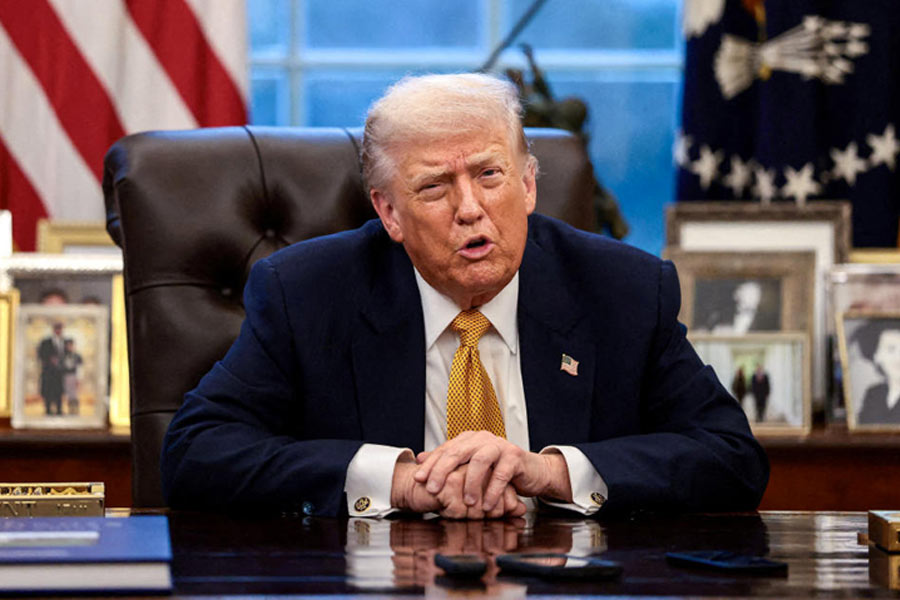 |
About 10 years ago, while New Delhi’s diplomatic community in Chanakyapuri was right in the middle of preparations for Christmas, a European ambassador urgently summoned his deputy chief of mission to his office. The ambassador, a political appointee with little experience of diplomacy or protocol, asked his deputy to draft a message from him to the emperor of Japan. That day, December 23, was the emperor’s birthday, which is celebrated in Japan and in Japanese communities around the world, as national day. The ambassador in question had received an invitation from his Japanese counterpart and neighbour in Chanakyapuri to attend the festivities at Japan’s embassy in New Delhi. The European politician-turned-diplomat felt it was only appropriate that he should personally send a congratulatory cable or a letter to Emperor Akihito on that occasion. His deputy tried to explain to the ambassador that it was not his business to deal directly with the occupant of Chrysanthemum Throne, that what was required to be done at the Imperial Palace in Tokyo would be done by the ambassador’s counterpart in Japan. But the righteous envoy, full of self-importance, would not take the deputy’s advice.
Such behaviour among political appointees who assume diplomatic or constitutional offices is not unknown in India either. Kuldip Nayar, who was appointed high commissioner to Britain by V.P. Singh’s government, has admitted that he wanted to formally protest against Saddam Hussein’s execution of Farzad Bazoft, The Observer correspondent who was accused of spying for Israel and sentenced to death in a show trial a few months before Iraq’s invasion of Kuwait in 1990. Nayar’s deputy at India House in London told the high commissioner that not only was it none of his business but he also reminded him that India had excellent relations with Iraq, which could be affected by such an irrational act. But Nayar argued that it was a matter of his conscience and that as a journalist he had to protest against the injustice done to another journalist even though he had metamorphosed into an envoy to the court of St James.
The decision of the Bengal governor, Gopalkrishna Gandhi, in March to speak out against what was happening in Nandigram and his latest statement, followed up by activities not common among his peers in other Raj Bhavans across the country, reminded me of these and other similar incidents that I have had to encounter in the course of covering diplomacy and statecraft. Viewed from Washington, the only reasonable conclusion is that the governor could have served the state better by remaining above local politics.
It is no exaggeration to say that today West Bengal is a prize that is being eyed by global corporations, not just in the United States of America, but also in Canada and parts of Europe. By no means are these corporations attracted by the natural beauty of the state or by West Bengal’s record of human rights.
Capitalism does not operate that way. Multinational corporations, however, recognize that in an India that is reforming and is poised for greater things in the world, West Bengal has immense potential and opportunities for growth, maybe even more in the long run than business-friendly states like Maharashtra, Gujarat or Tamil Nadu, if only because the level of saturation of economic activity in those states has reached a high.
Those around the world who are thinking of investing in India for the long haul recognize that real estate prices in West Bengal are still low and attractive in comparison to locations, say, in Andhra Pradesh or Karnataka that are similarly suited for business ventures; that human resources are more easily accessible in Calcutta because of its location; and that soliciting investments is a relatively new faith in West Bengal and, therefore, the new converts to that faith are more passionate and dedicated than ones elsewhere in India, for whom such faith may have deteriorated into a mere ritual. Global corporations which take a broader view of their strategies in Asia also recognize that Calcutta is a better bet as a gateway to south- east Asia than any other place in the region if they are looking at markets that include Myanmar and Bangladesh, even Thailand and beyond.
Astute global entrepreneurs who have built corporations that rival the wealth of nations also know that in countries like India, political problems have a way of sorting themselves out. It is not only the Henry Kissingers and Henry Paulsons who flock to Calcutta these days who have read John Kenneth Galbraith: many a Western banker or a company executive posted today in India will quote the former US ambassador to argue that for a “functioning anarchy”, India has done reasonably well in the last 60 years. It could have done better, but the overall scorecard is not bad if you look at the recent record of decolonization elsewhere.
State structures the world over, democratic or otherwise, have evolved in the 20th century in ways that have redefined tasks in the polity: that is how organizations like the Amnesty International and Human Rights Watch have acquired their larger-than-life global status, that is why non-governmental organizations are now integral to civil society. These organizations mean well, at least in principle, be it in Myanmar or Moscow. When a governor steps into their shoes, he is actually usurping their functions and upsetting the delicate balance that is the politico-social reality of the 21st century. Investors and businessmen have learned to live with the Amnesty Internationals of the world, even advance each other’s missions, but not so with a governor who assumes the role of a missionary instead of a state functionary. In such situations, the state functionary only promotes his pet cause, not that of the state which ought to be his primary function.
From Washington, West Bengal, in recent years, has appeared to have been poised on the threshold of momentous developments, only to be stranded by the receding tide of development or prosperity. A governor appearing to criticize the state government may accentuate that ebbing low tide.
There are lessons to be learned for all in the context of Nandigram, as this newspaper has repeatedly editorialized. Gandhi, with his administrative experience and his international exposure, should contribute to that learning process. With creative intervention from someone like Gandhi, could West Bengal not have emerged as a model in rehabilitation for development, a process which has dismally failed everywhere in India in the last six decades? Could he not have reduced the travails of people in the state affected by development — now and in the future — on an institutional level, by leading an effort to reduce the human cost of that process with the same zeal that he is getting caught up in the political fallout of Nandigram?










